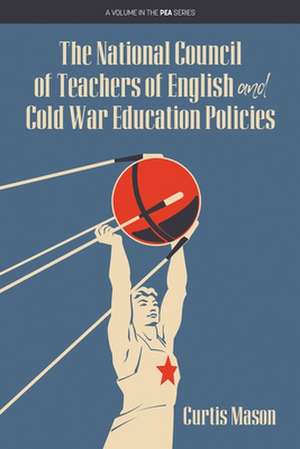The National Council of Teachers of English and Cold War Education Policies
Autor Curtis Masonen Limba Engleză Paperback – 25 feb 2020
Preț: 381.89 lei
Nou
Puncte Express: 573
Preț estimativ în valută:
73.08€ • 79.70$ • 61.62£
73.08€ • 79.70$ • 61.62£
Carte tipărită la comandă
Livrare economică 24 aprilie-08 mai
Preluare comenzi: 021 569.72.76
Specificații
ISBN-13: 9781641139458
ISBN-10: 1641139455
Pagini: 112
Dimensiuni: 156 x 234 x 6 mm
Greutate: 0.17 kg
Editura: Information Age Publishing
ISBN-10: 1641139455
Pagini: 112
Dimensiuni: 156 x 234 x 6 mm
Greutate: 0.17 kg
Editura: Information Age Publishing
Descriere
The launching of Sputnik in 1957 sparked an education movement that stressed the importance of curricular rigour and standardization as a means to improve education. This book explores the role of the National Council of Teachers of English during this period.
